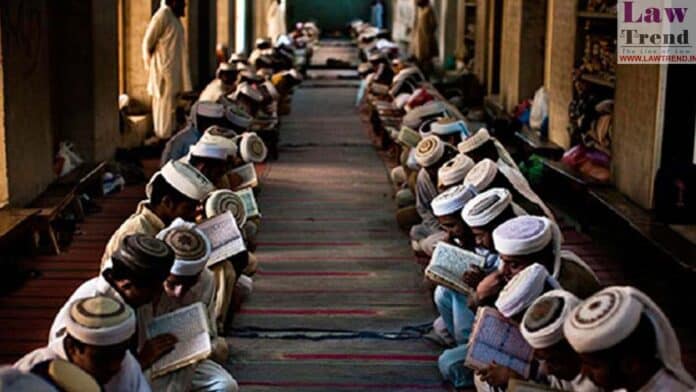In a pivotal ruling, the Supreme Court of India issued a stay on the Uttar Pradesh government’s recent directive to transfer students from unrecognized madrasas and non-Muslim students from government-aided madrasas to government schools. The decision comes in response to a plea from Jamiat Ulema-e-Hind, challenging the state’s action prompted by a letter from the National Commission for Protection of Child Rights (NCPCR).
The three-judge bench, led by Chief Justice DY Chandrachud, responded to the petition by staying both the NCPCR’s communications from June and all actions the state government had taken based on those communications. “Issue notice. The communications from the NCPCR dated June 7 and June 25, issued on June 27, are stayed, along with all subsequent actions,” ordered the Court.
The controversy stems from a June 26 order by then Chief Secretary Durga Shankar Mishra, which followed a NCPCR letter calling for the admission of all non-Muslim students in government-funded madrasas into Basic Education Council schools. The NCPCR had labeled the madrasas as “unsuitable and unfit” for providing proper education, claiming they do not meet the standards set by the Right to Education (RTE) Act, 2009.

According to the NCPCR, the instruction provided within madrasas is overly religious and fails to comply with the RTE Act and other relevant laws, infringing on a child’s fundamental constitutional right to education. The commission argued in the Supreme Court that such education “institutionalizes” the religious nature of instruction, which is a serious concern.
This Supreme Court stay also ties into a separate ongoing petition challenging the Allahabad High Court’s March 22 ruling that struck down the ‘UP Board of Madrasa Education Act 2004’ as unconstitutional. The high court had argued that a secular state cannot establish a board for religious education or create separate educational systems for different religions.
The NCPCR has identified three categories of madrasas in India: recognized madrasas that may provide some formal education, unrecognized madrasas with inadequate formal education, and unmapped madrasas that have never sought recognition. The commission contends that since madrasas are exempt from the RTE Act, children enrolled in them miss out on formal schooling benefits such as midday meals, uniforms, and trained teachers.







